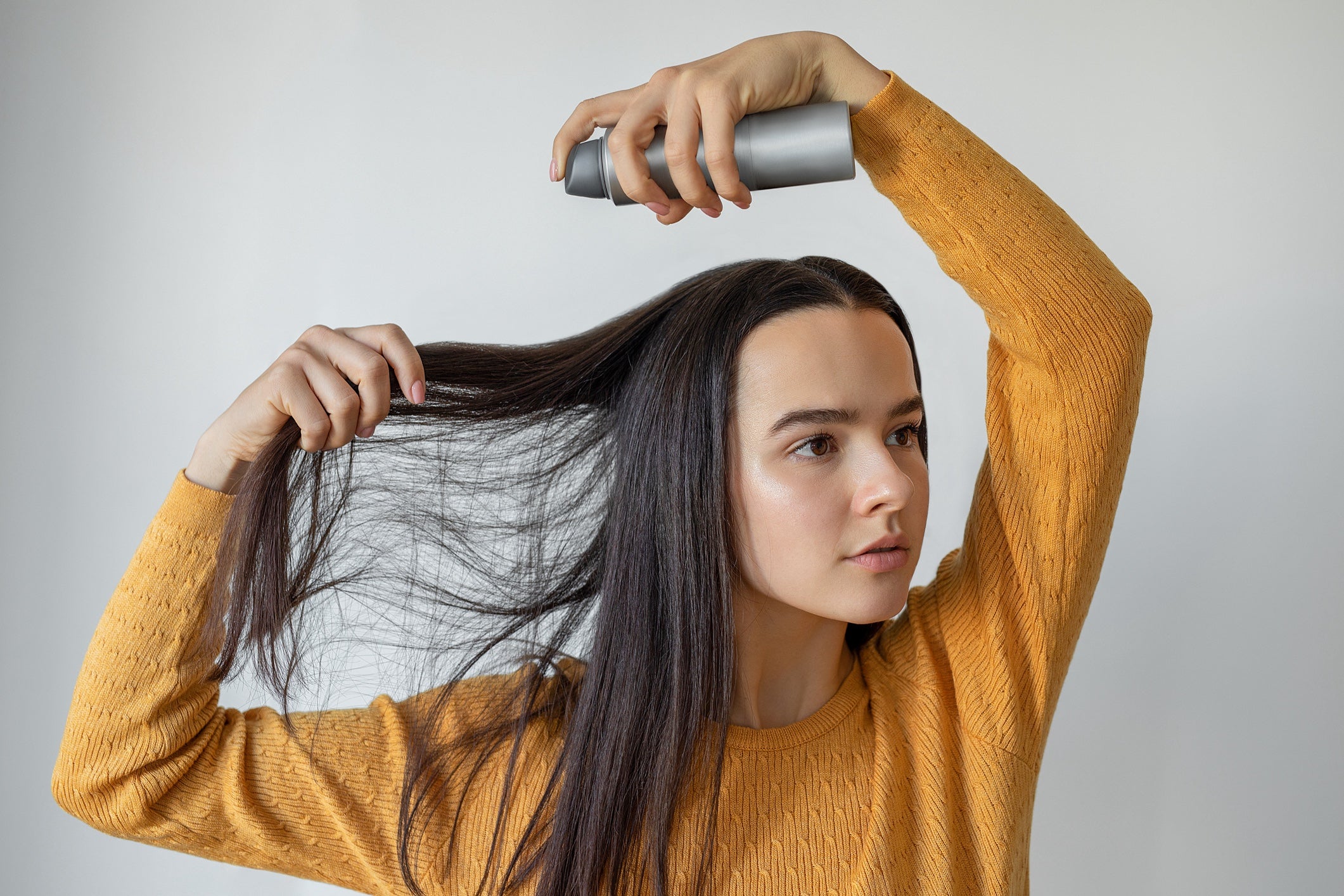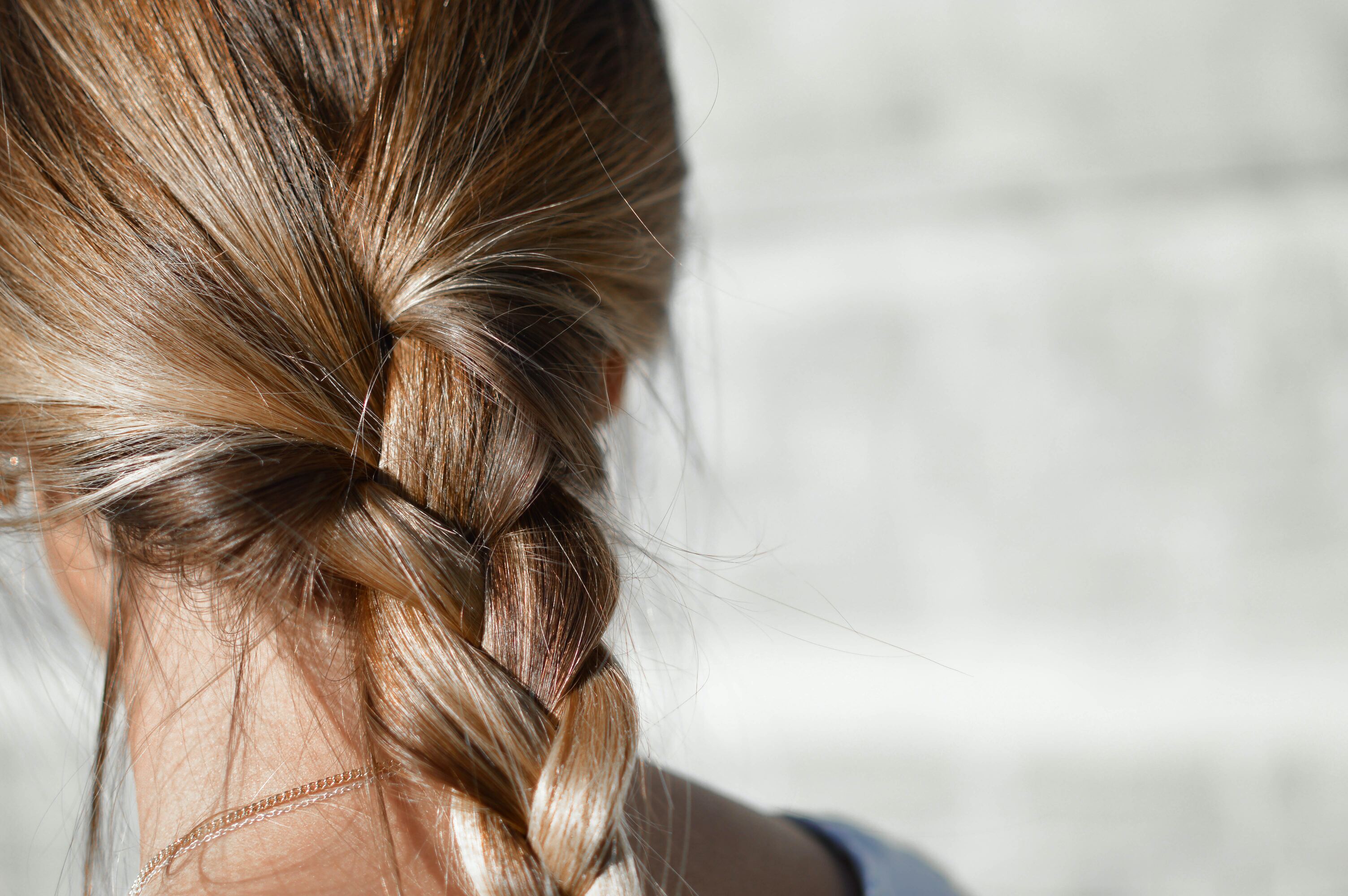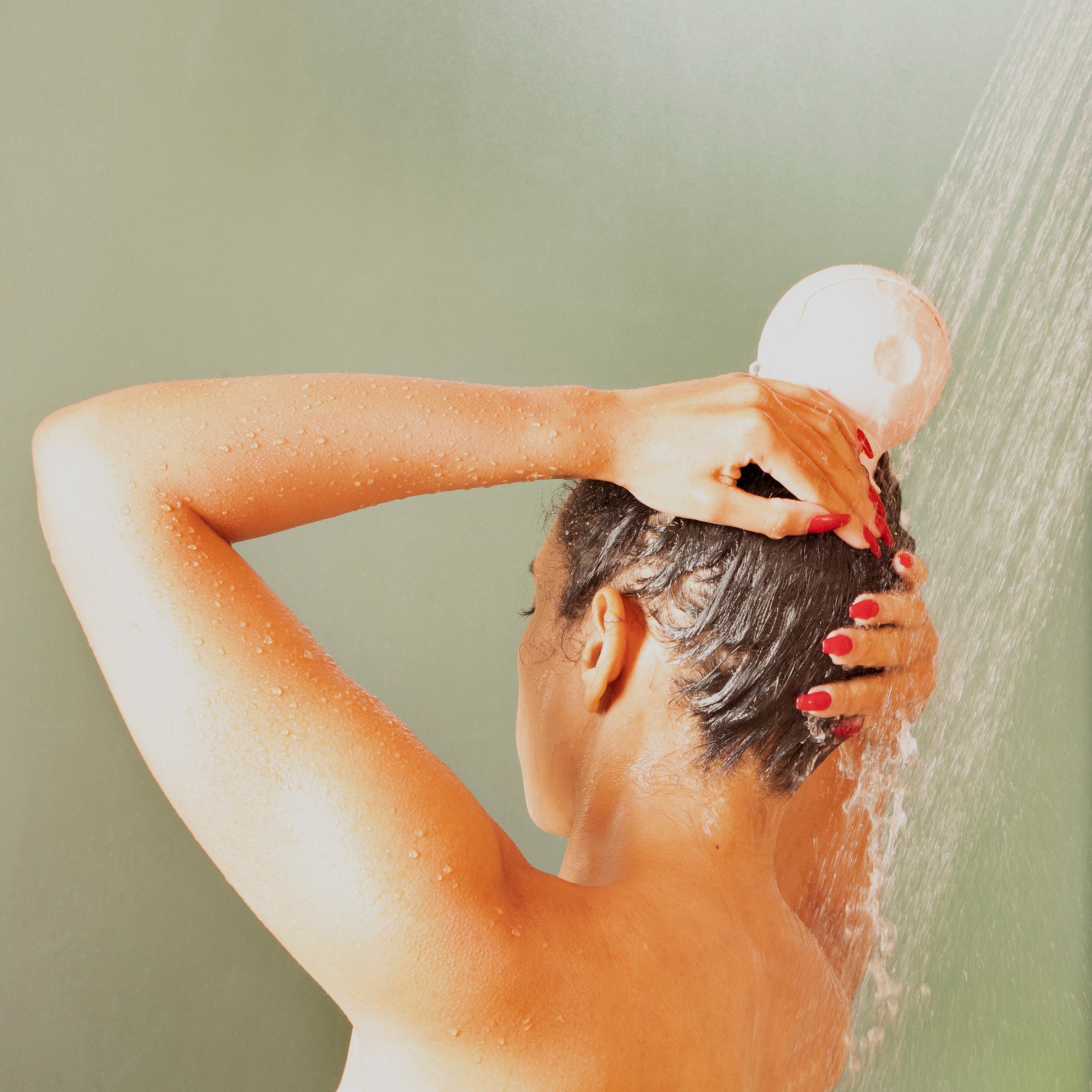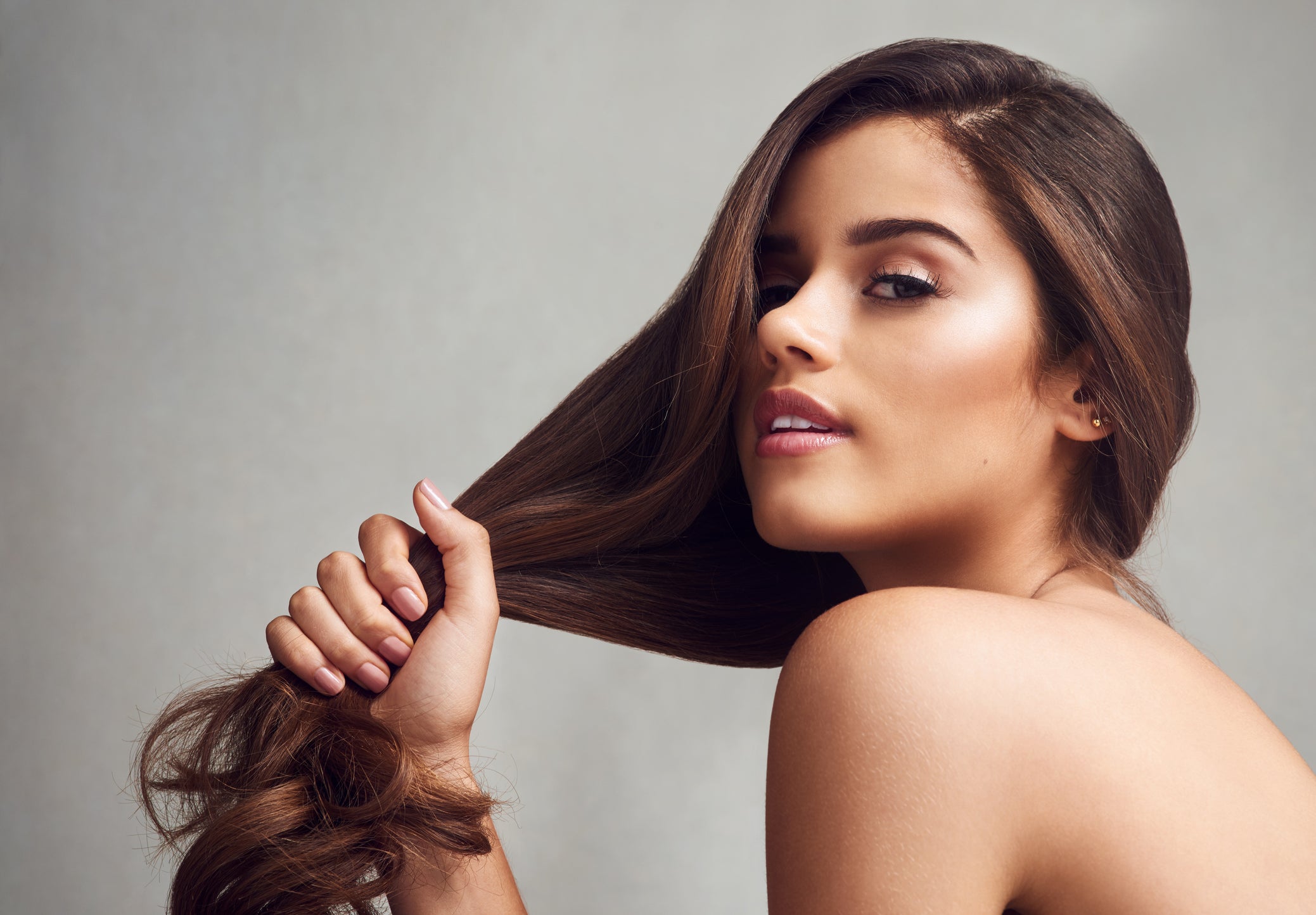Is dry shampoo harmful? Does using dry shampoo every day cause hair loss? What is actually in the spray?

Hey, have you ever wondered if dry shampoo is bad for your hair? Or whether daily use can lead to hair loss? What exactly is in this spray? If you're tired of constantly washing your hair, dry shampoo could be an effortless and effective solution. But before you use it, you should know that the ingredients may vary depending on the product. So read the package instructions carefully to find the right product for your hair type and needs.
1. What is dry shampoo?
Dry shampoo is a product that can help wash hair effortlessly and effectively without using water. Unlike traditional shampoo, which is typically used to cleanse the hair and scalp, dry shampoo is applied as a spray directly to the hairline. It contains ingredients such as starch or rice starch that can absorb excess oil and sebum, thus refreshing and adding volume to the hair. Some dry shampoos also contain fragrances to give the hair a pleasant smell. It's important to use the right dry shampoo for your hair type as there are different products for different needs. Before using dry shampoo, it is advisable to brush your hair thoroughly to avoid tangling. Then apply the spray to the roots and massage it gently into the scalp. Let it sit for a few minutes and then brush again to remove any residue. Although dry shampoo can be a practical alternative, it is important to note that regular use should not be viewed as a replacement for a thorough hair wash with water and shampoo. It can cause dust, dirt and product residue to build up on the scalp, which can affect hair growth in the long term. To minimize the risk of hair loss, it is advisable not to use dry shampoo every day and only use it when really necessary.
2. How does dry shampoo work?
Dry shampoo is a popular product that can help refresh hair quickly and effortlessly, especially on days when there is no time for a proper hair wash. But how does dry shampoo actually work? The principle behind dry shampoo is to absorb excess oil and sebum from the scalp and hair, creating a fresher look. It is sprayed onto the roots of the hair in the form of a spray and then worked into the hair with the fingers or a brush. The ingredients in the dry shampoo bind excess fat and give the hair a clean look without the need for water. The exact ingredients may vary depending on the manufacturer and product variant. As a rule, dry shampoos contain, among other things, ingredients such as aluminum, rice or corn starch, which absorb the fat. It can also contain nourishing substances such as panthenol or provitamin B5, which keep the hair supple. One of the most common questions surrounding dry shampoo is whether using it daily can cause hair loss. There are currently no scientific studies proving a direct connection between dry shampoo and hair loss. However, excessive use of dry shampoo can irritate the scalp and lead to scalp balance, which can negatively impact hair growth. To keep your hair healthy, it is important to only use dry shampoo occasionally and to wash your hair properly with shampoo and conditioner regularly. Dry shampoo can serve as a complementary product to prolong freshness between hair washes, but should not be seen as a replacement for a thorough cleansing of the hair and especially the scalp. Balanced hair care with the correct use of shampoo, conditioner and nourishing products remains essential for hair health.
3. What ingredients are contained in dry shampoos?
In the previous section, we looked at how dry shampoo works and whether daily use can cause hair loss. Now let's take a closer look at what ingredients are contained in dry shampoos. It is important to know what we put on our hair and scalp, especially when it comes to daily hair care. Dry shampoos typically contain a blend of different ingredients designed to absorb excess oil and leave hair looking refreshed. A commonly used ingredient is starch, such as rice starch or corn starch. These starches have an absorbent effect and help reduce the greasy appearance of the hair. Another popular ingredient is kaolin, a type of clay that also has oil-absorbing properties. In addition to the absorbent ingredients, dry shampoos often also contain fragrance to give a fresh smell. These fragrances can come from natural or synthetic sources. Some dry shampoos also contain conditioning ingredients such as plant extracts or vitamins to nourish and moisturize hair. It is important to note that not all ingredients are suitable for every hair type or scalp. Some people may be sensitive to certain ingredients and develop skin irritations. Therefore, before using a new product, it is advisable to carefully check the ingredients and consult a dermatologist or hairdresser if you have any concerns. Finally, it is important to use dry shampoos correctly and not to see them as a replacement for thoroughly washing your hair with water and shampoo. Dry shampoos can be a convenient in-between solution, but regular hair washing with water and shampoo remains essential to ensure optimal hair and scalp health. In the next sections, we'll take a closer look at the effects of daily dry shampoo use on hair loss and scientific studies on it. We also give tips on how to use dry shampoo effortlessly and effectively, as well as alternative methods to keep your hair fresh. So stay tuned!
4. Can using dry shampoo every day cause hair loss?
When it comes to using dry shampoo, the question that often comes up is whether daily use can cause hair loss. After all, for most people, hair loss is a nightmare that they desperately want to avoid. However, using dry shampoo every day can be safe as long as you keep a few important points in mind. First of all, you should understand how dry shampoo works and what ingredients it contains. Dry shampoo is a product specifically designed to make washing your hair effortless and effective, especially if you are unable to wash your hair with water regularly. It usually consists of ingredients such as starch or aluminum salts that absorb excess oil on the scalp and leave the roots looking fresher. When it comes to hair loss, it's important to note that dry shampoo itself is not a direct trigger for hair loss. However, there are some factors that should be taken into account to avoid potential problems. Overuse of dry shampoo can cause residue to build up on the scalp and clog pores, which in turn can affect hair follicles. Therefore, it is advisable not to use dry shampoo every day and instead include traditional hair washing methods in your routine to thoroughly cleanse the scalp. It is also important to choose the right dry shampoos for your hair type and needs. Different products are designed for different hair types and requirements. Some dry shampoos also contain conditioning ingredients such as conditioners to moisturize the hair, while others are specifically designed for oily hair. By choosing the right product for you and using it according to the instructions, you can further reduce the risk of hair loss. Find all your tips here on how to use dry shampoo effectively and correctly.
5. Are there any scientific studies showing a connection between dry shampoo and hair loss?
To date, there is limited scientific research on this specific topic. However, there are some studies that suggest a possible link between dry shampoo and hair loss. A study found that certain ingredients, such as aluminum starch, found in some dry shampoos, can irritate the scalp and cause hair loss. Another study has shown that frequent use of dry shampoo can lead to a buildup of residue on the scalp, which can clog hair follicles and impair hair growth. This could lead to hair loss in the long term. It is important to note that these studies do not provide definitive evidence and further research is needed to establish a clear link between dry shampoo and hair loss. Every hair type and scalp is unique, so the reaction to dry shampoo may vary from person to person. If you want to use dry shampoo and are concerned about its possible effects on hair loss, we recommend using dry shampoo sparingly and using products with natural ingredients. It is also important to wash your hair thoroughly regularly with a mild shampoo to remove residue and keep the scalp healthy. Ultimately, everyone should decide for themselves whether regular use of dry shampoo is suitable for their own hair. There are alternatives to daily use of dry shampoo, such as washing your hair effortlessly and effectively with water and shampoo.
6. Tips for using dry shampoo effortlessly and effectively
When it comes to using dry shampoo effortlessly and effectively, there are a few tips that can help you get the most out of this product. First, you should spray the dry shampoo at a distance of about 15 to 20 cm from the roots of your hair. This means the product is distributed evenly and can develop its effect. Then you should let it sit for a few minutes to absorb any excess oil. You can then gently massage it into your hair with either your fingers or a brush. Another tip is not to use dry shampoo every day. Although it is a great alternative to washing your hair, it should not be used as a replacement for regular hair washing. It's important to wash your hair properly occasionally to remove styling product residue and dirt and keep your scalp healthy. Overall, dry shampoo is a practical and useful product to treat oily hair between washes. With the right tips and conscious use, you can get the most out of your dry shampoo and care for your hair effortlessly and effectively.
7. Alternatives to daily use of dry shampoo
In our previous article, we discussed the pros and cons of using dry shampoo regularly and wondered whether it is harmful. Now we would like to look at another aspect and talk about alternatives to daily use of dry shampoo. Because while many people love the convenient spray, there are some who have concerns about its frequent use. A possible alternative to daily use of dry shampoo is to wash your hair effortlessly and effectively with conventional shampoos and conditioners. These offer a thorough cleansing of the hair and scalp without having to resort to dry shampoo. It is important to choose the right shampoo and conditioner for your own hair type. Various products are specifically tailored to specific needs of the hair and scalp, so that individual care is possible. Another tip is to use DryBun. With DryBun you only clean what is dirty and/or sweaty, namely your scalp. Your long hair stays dry and is less stressed, which prevents hair breakage or split ends.
Conclusion: Is dry shampoo harmful or not?
Dry shampoo is a practical alternative to conventional hair washing, especially if you have to do it quickly in the morning or are on the go. By using the spray you can refresh your hair and give it volume again without getting it wet.
DryBun works without chemicals or additives. Make a bun, put on the DryBun, shower, dry briefly, DONE!
Further questions on the topic:
How can I wash my hair less often?
There are various ways to reduce the need to wash your hair. First of all, it is important not to shampoo your hair every day. Frequent washing stimulates the natural production of sebum, which can lead to greasy hair. Instead, it is recommended to only wash your hair every second or third day. It is also advisable not to style your hair too often. Using heat, such as from a flat iron or curling iron, can make hair greasy more quickly. It is better to choose natural hairstyles and minimize the use of styling products. In addition, it can be helpful to rinse your hair thoroughly and not leave any residue from shampoo or conditioner. These residues can cause the hair to become greasy more quickly. It is also important not to touch the hair too often as this can stimulate the production of sebum. In summary, you should try to only wash your hair every few days, treat your hair gently and use DryBun.
What is the best way to wash your hair?
It is best to wash your hair in the following steps. First you should wet your hair thoroughly with lukewarm water. Then take a small amount of shampoo and massage it gently into your scalp. It is important to distribute the shampoo well and not to neglect any root. Then rinse the shampoo thoroughly to ensure that no residue remains. After rinsing, you can apply a conditioner or hair treatment to the lengths and ends. You should leave this on for a few minutes to care for your hair. Then the conditioner is rinsed out thoroughly. It is recommended not to wash your hair too often as this strips the scalp's natural oils and can lead to dry hair. It is advisable to wash your hair two to three times a week. After washing, you should gently pat your hair with a towel instead of rubbing it roughly to avoid hair damage.


